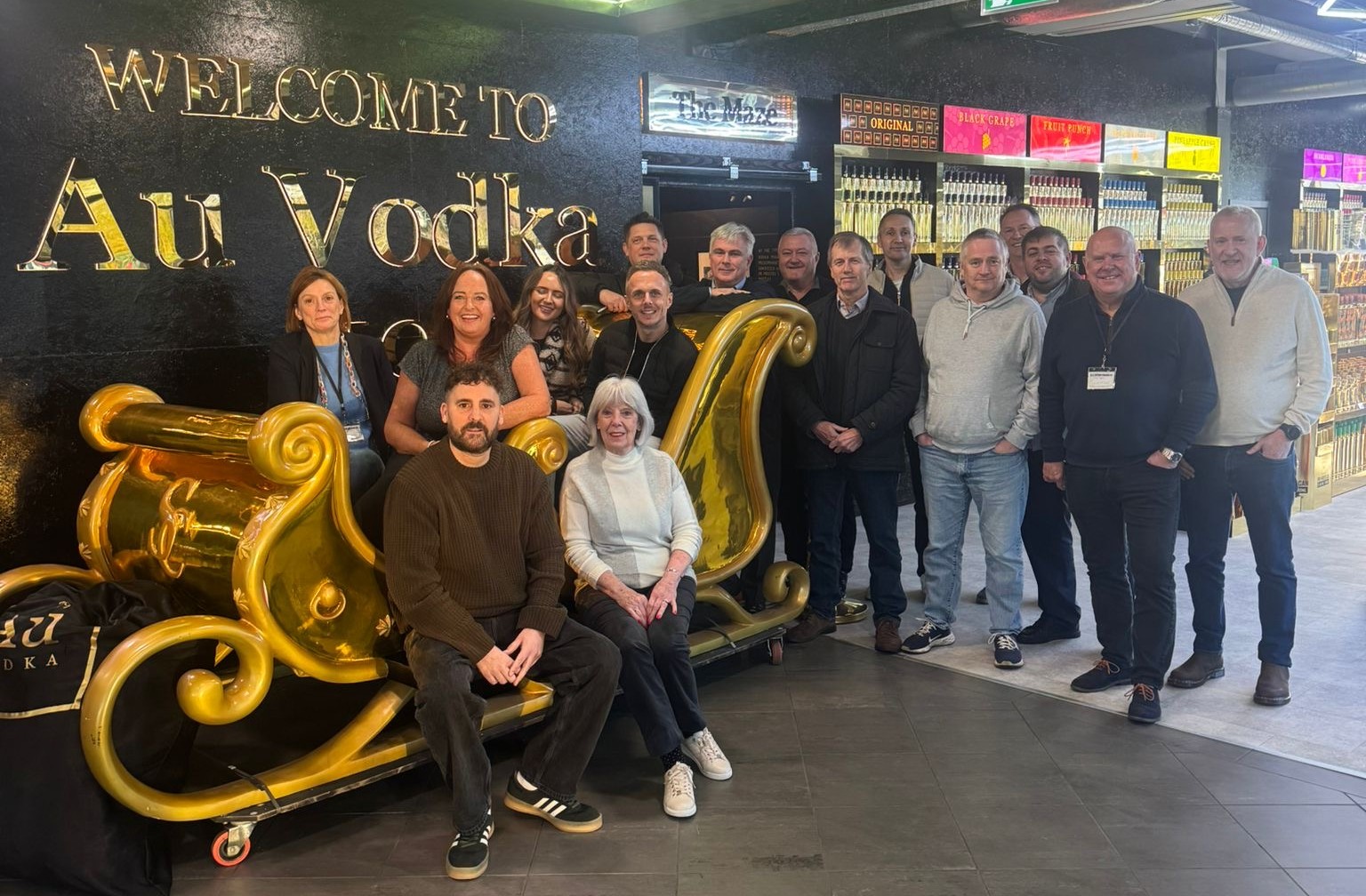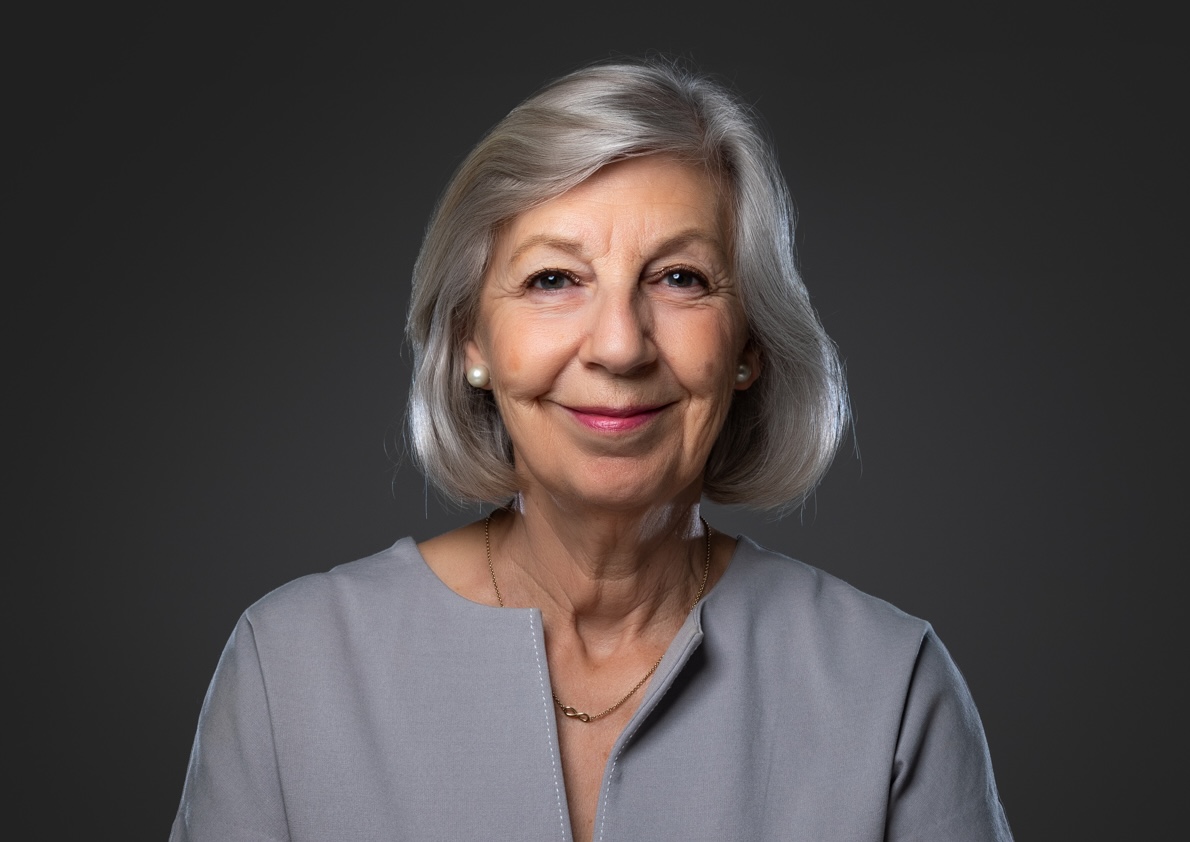May 13, 2024
On location: a summary of TFAP's day one conference on the rise of Asia
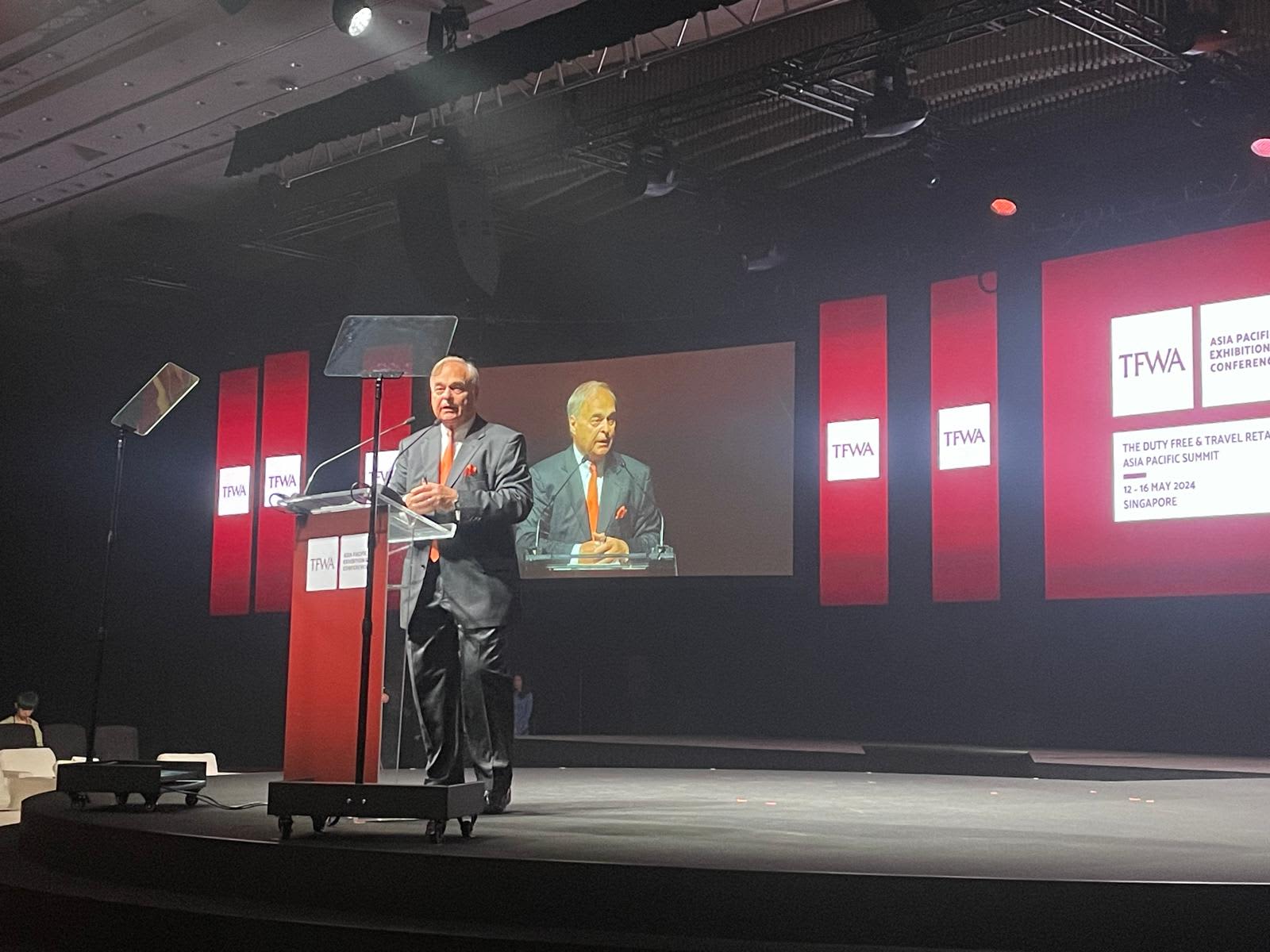
TFWA President Erik Juul-Mortensen delivered the opening address of the conference
Moderated by TFWA Conference Director Michele Miranda and author & venture capitalist Azran Osman-Rani (former CEO at AirAsia X), 2024 TFWA Asia Pacific Conference & Exhibition officially kicked off with day one's conference session.
“This conference will cover critical topics that will shape our industry in the years to come,” Miranda stated.
TFWA President Erik Juul-Mortensen delivered the opening address. This will be his final show in the role of President of the association, which is celebrating its 40th anniversary this year.
While the rate of recovery continues to vary widely across the region, he said China remains a “powerhouse.” This is despite the crackdown on the Daigou market (particularly in Korea) and evolving travel retail expectations that are proving harder to raise spend per head.
ForwardKeys reported that China was up on traffic bookings in Q1 2024 (down 32% vs. 2019). In contrast, duty free sales in Hainan increased 25% last year, measured against visitor growth of about 60% which equates to lower spending.
He also cited the cruise industry as achieving impressive growth at a modern rate and two topics of concern in the channel based on collaboration: the lack of accessibility of market data and the lack of coherence among sustainability practices.
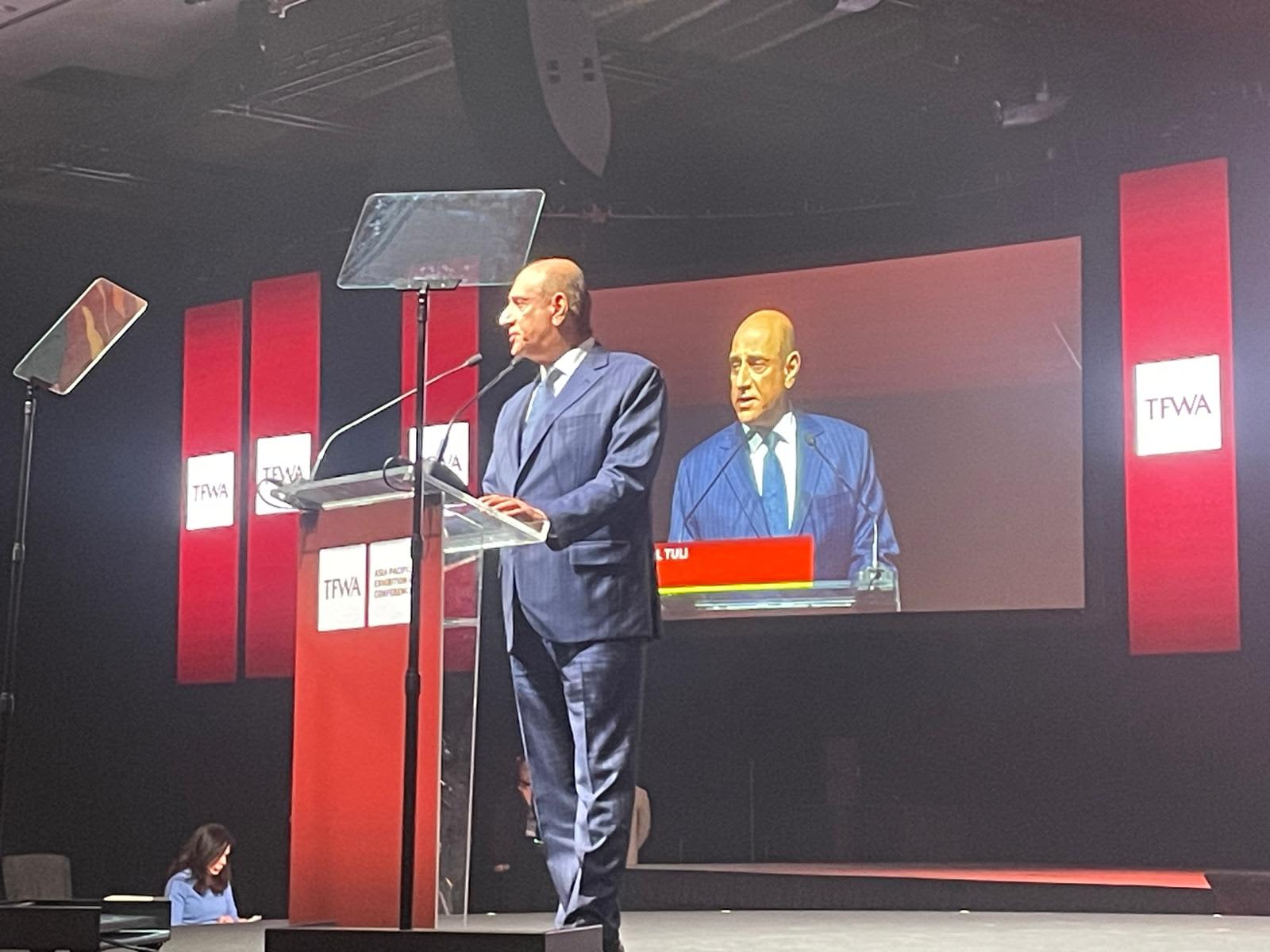
APTRA President Sunil Tuli provided the welcoming remarks
APTRA President Sunil Tuli echoed Juul-Mortensen’s address during his welcoming remarks, in addition to speaking about the success of the APTRA India Conference earlier this year in Delhi. Advocacy remains at the heart of the association’s work. Tuli shared it will continue to invest in objective, robust research to encourage knowledge sharing, dynamic collaboration and increased relevancy.
On the success of future dynamics, he added, “We must prioritize continual investment in insights across all stakeholders, airlines, airports, brands, food and beverage and retailers, to keep in line with consumer aspirations and needs in different markets."
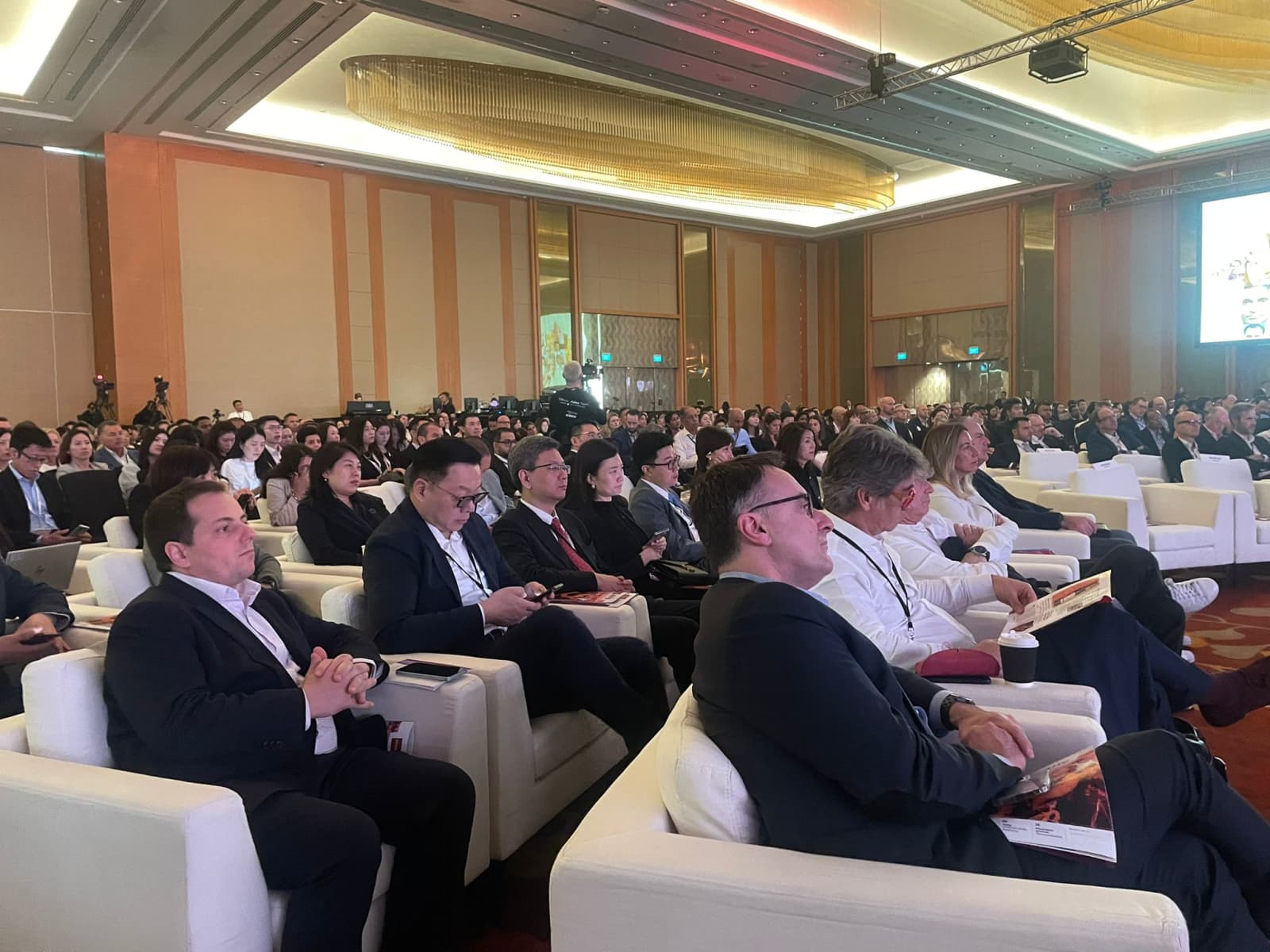
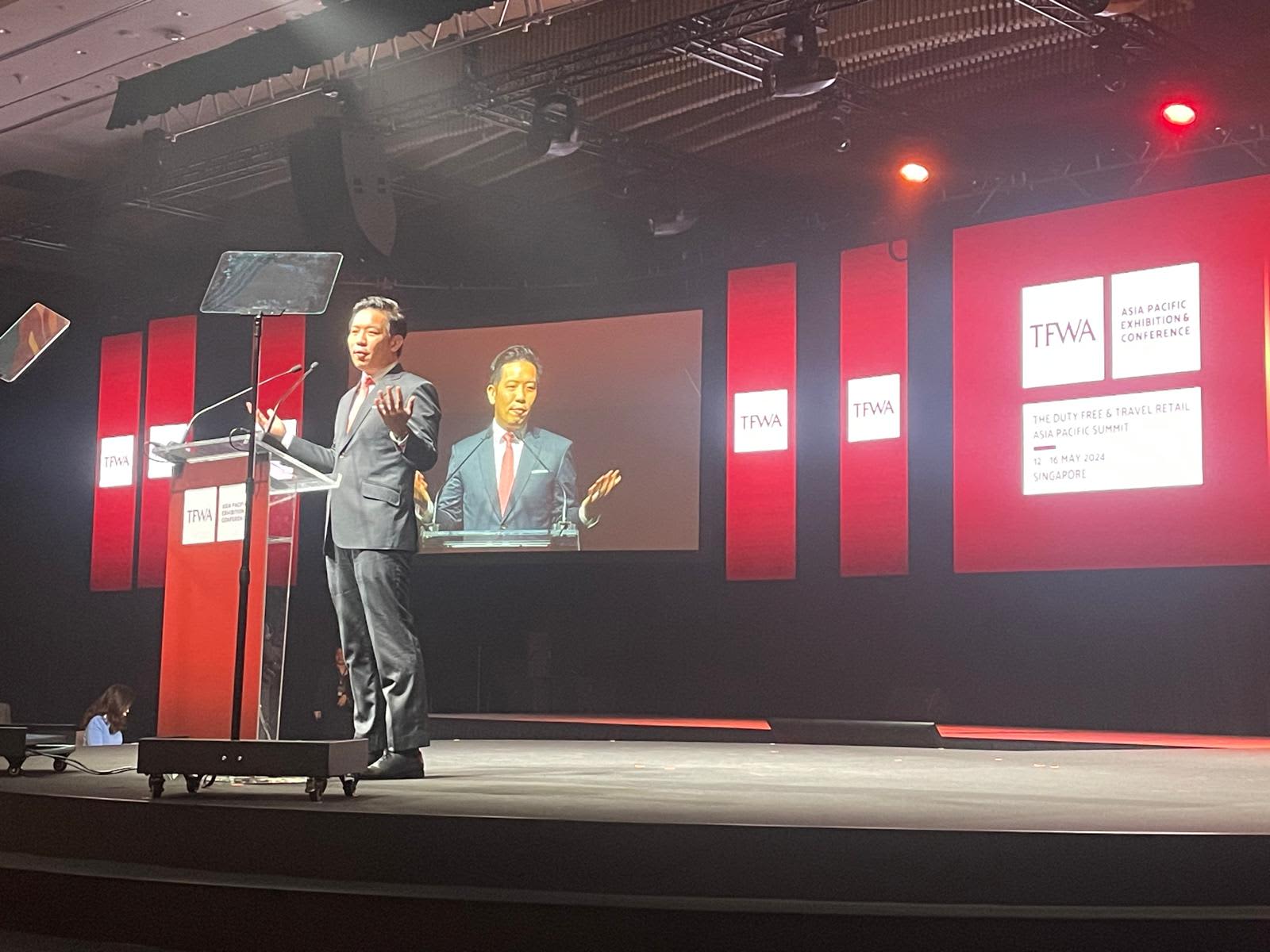
Alvin Tan, Minister of State for Trade & Industry, and Culture, Community & Youth, Republic of Singapore, discussed Singapore's role in the present travel retail landscape
Describing Singapore’s role in the current duty free landscape, Alvin Tan, Minister of State for Trade & Industry, and Culture, Community & Youth, Republic of Singapore called it a “stress-free region.” Strategically located in Asia and well connected, Singapore possesses the ability to plan long-term and deliver a stable political transition.
“We are planning infrastructure investments that will help us in the new energy world, as well as in a world that is plagued by climate change. We are planning infrastructure in terms of our airports and this [year's] leadership transition will allow us to plan ahead,” he said.
Tan offered the following figures:
- Providing 6,400 fights weekly from Changi Airport, Singapore is connected to 151 cities and 49 countries and territories worldwide
- In February, PAX at Changi Airport reached 5.35m, rising above the pre-pandemic level
- The completion of Changi Airport's Terminal 5 by the mid-2030s means it will be able to handle over 50 million passenger movements per year
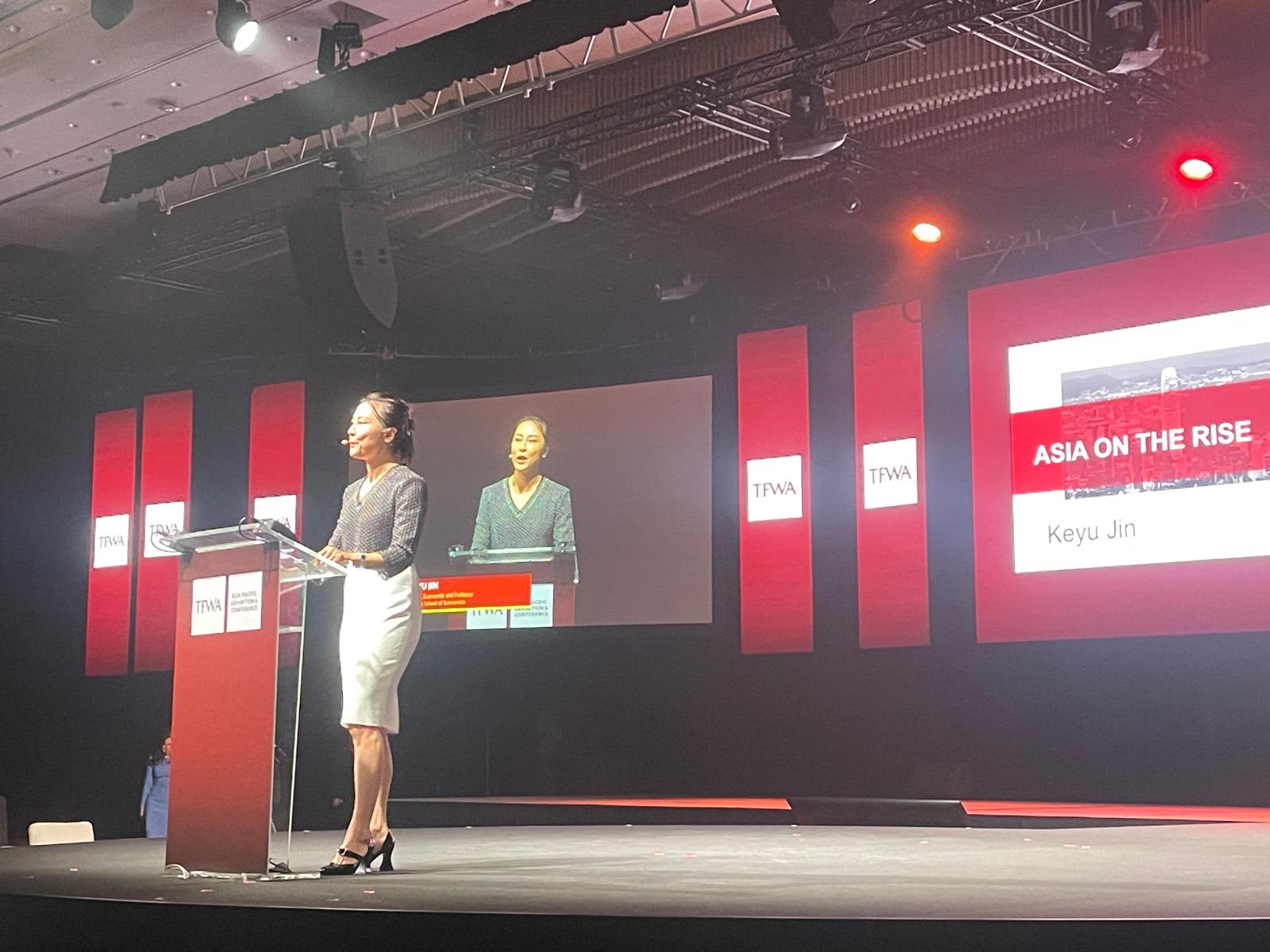
Keyu Jin, author, economist and professor, London School of Economics, led the "Asia Pacific: Takes Off" section of the conference
Asia Pacific: Takes Off
Keyu Jin, author, economist and professor, London School of Economics, opened the section by sharing several facts about Asia, including that it has the highest saving rate worldwide.
See the full list below:
- The top three fastest growing countries in the world in 2024/2025 and potentially in the foreseeable future are all located in Asia (including India, China and Indonesia)
- The region is home to the countries that have grown the fastest for the longest period of time (including China, Japan, Korea and Singapore)
- By 2030, two out of three middle class consumers will be found in this region, resulting in major consequences for future trends (such as the upgrade in the quality of consumption)
- The region consists of the largest group of millennials at 61%
- Asia is the largest trading block (shifting to a more regional focus)
Jin suggested that contrary to popular belief, globalization has not receded. "Globalization is not breaking down, it's simply being rerouted and there has been a reallocation of investment taking place, which offers comfort to continued travel," she said.
Jin continued, "China is on the frontier of cutting-edge technology and has enormous innovative capacity. One of the most promising factors about this region is its technology. Technology generates productivity growth, which is the only factor that determines long-term sustainable growth." This is the kind of growth that Singapore, Japan, South Korea have all managed to attain.
Offering insight into the new generation in China, she explained this group will change the landscape of its economy and young leaders in every field will "take over the keys to China." Fluid in multiple languages and open to different cultures and political systems, Gen Zs and millennials share a positive outlook on globalization, which will link East and West. "We need to give [the new generation] a safer, greener and cleaner world in order for them to live up to their potential," Jin concluded.
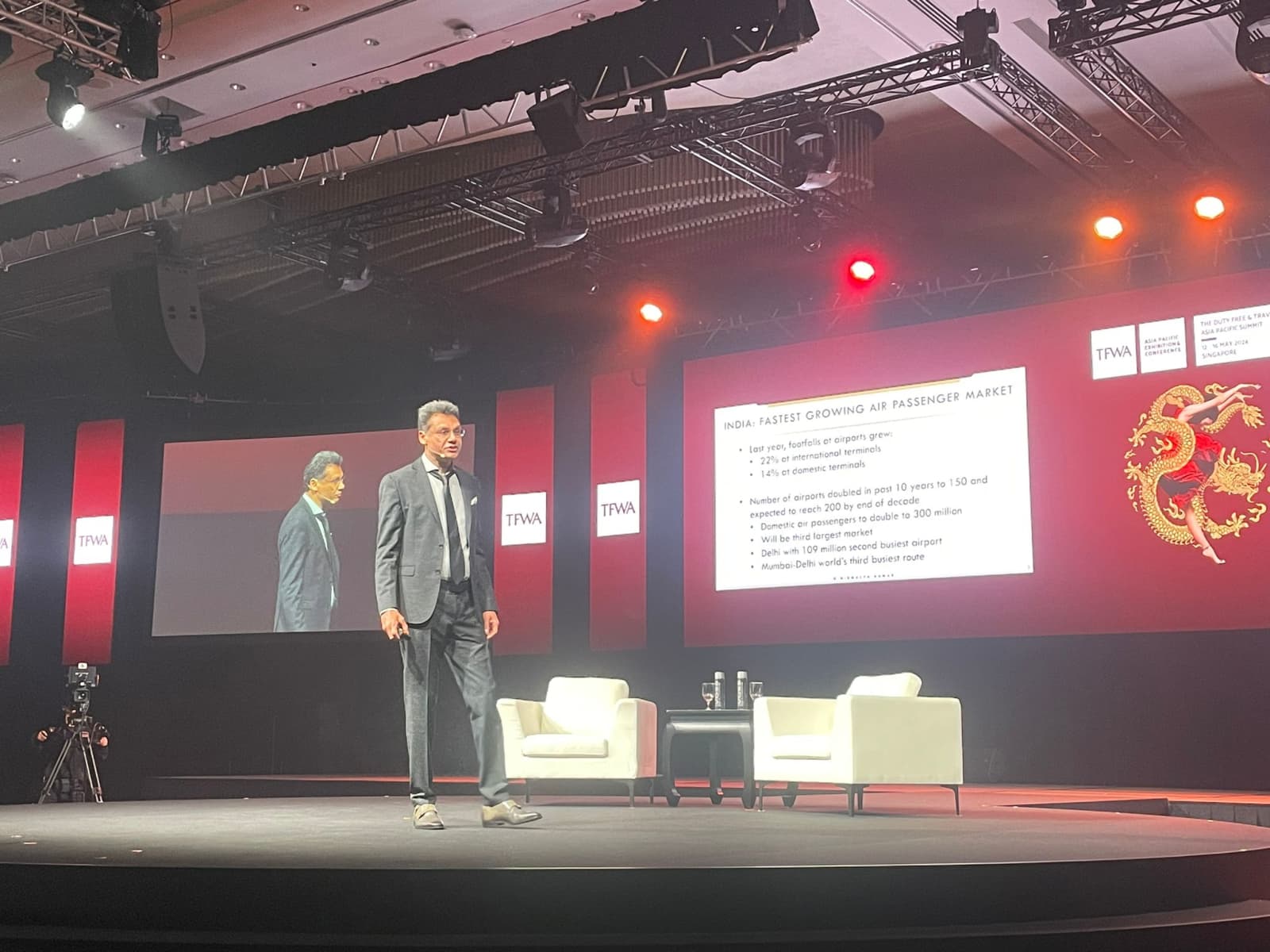
Nirmalya Kumar, author and professor, Singapore Management University led the "All Eyes on Asia" section of the conference
All Eyes on India
Describing the India growth story as the China slowdown story, Nirmalya Kumar, author and professor, Singapore Management University, reiterated why APTRA's conference marked an industry milestone. According to Kumar, its growth story has been around for decades. With exceptional regional differences from state to state, he said it's necessary that each state in India is treated separately, as a country.
Last year, the footfall at airports increased 22% at intentional terminals and 14% at domestic terminals. Also, in the last 10 years, the number of airports doubled to 150; this number is expected to reach 200 by the end of the decade.
Rather than a price-sensitive market, he called India a value-conscious market, where quality is the most important attribute. High-end retail continues to lag across the region, partially because it's difficult for high-end brands to find adequate store space.
Extending the discussion on store penetration, Kumar referenced two case studies: one on Walmart and the other on Amazon. The two follow very different strategic objectives; the first aims to lower gross margin per year, while the second promises to deliver on convenience.

Michio Kaku, author, physicist and professor, City College of New York, led the "Tech Innovation: What's Next" section of the conference
Tech Innovation: What’s Next?
From space travel and brain net to quantum computers and telepathic communication, Michio Kaku, author, physicist and professor at City College of New York, presented on how science is the origin of all wealth. Described as physics at the molecular level, the fourth (and current) wave of wealth generation he shared is based on AI, Nanotech and Biotech.
Opposing the sentiment that virtual travel is a threat to the tourism industry, he said instead it only "wets the appetite of young people."
Also on the horizon, the availability of safe and fast supersonic jets that will shorten the time needed to fly to distant tourist destinations.



